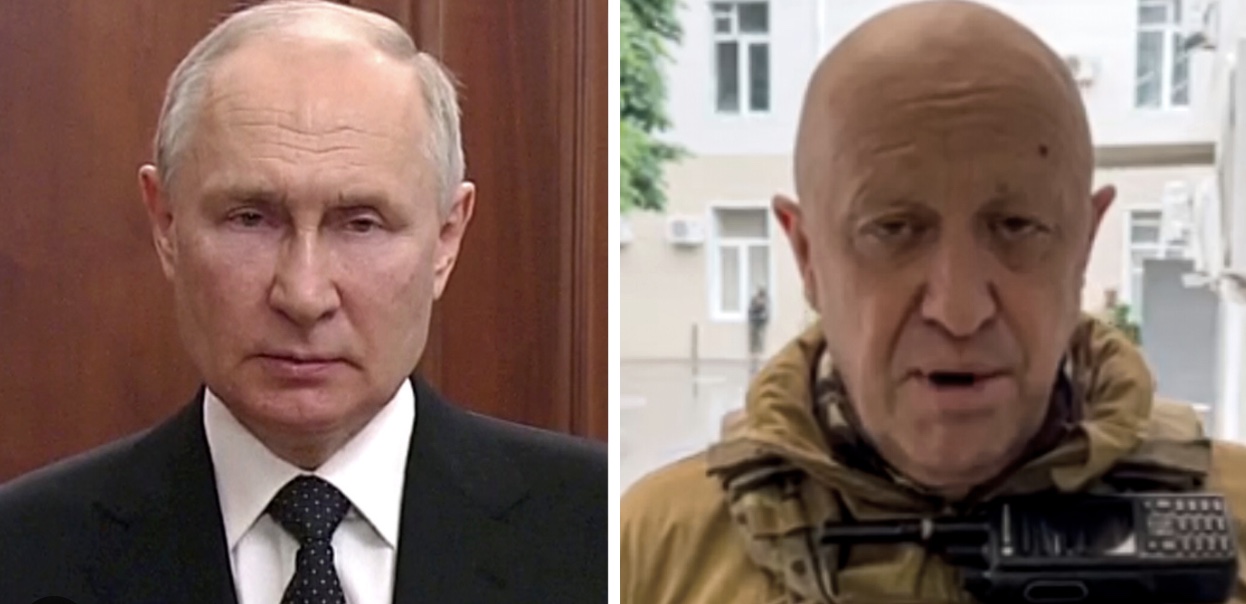Su Repubblica Gianluca Di Feo tells an indiscretion that could explain the lack of bloodshed at the gates of Moscow. The Airborne Forces, the only ones capable of dealing with Wagner's warriors in the field, did not obey either Defense Minister Shoigu, or Commander-in-Chief Gerasimov. According to the "Fortress" contingency plan taken on Friday night, it was up to them to protect the capital. Nothing, they remained in the barracks, as did the men of other special units, including the armored divisions. They were clearly against blocking Wagner's advance.
In the streets, in defense of Moscow, there were only the Rosgvardia battalions, the police, the military components of the secret services, territorial forces and the air force which was the protagonist of some raids.
Compared to Putin, Prigozhin was able to count on the unconditional loyalty of his men and on the belief that regular Army officers would never fire at his mercenaries.
Prigozhin is widely listened to in the Russian military world because perhaps he was the only one who managed to scream, in no uncertain terms, about the inadequacy of Putin's army, knowingly sent to slaughter.
A condition that he repeated to the two Russian generals in Rostov during the meeting broadcast on a telegram that heralded the undertaking to take Moscow. Yesterday, even Russian oligarchs and corrupt ministers quickly left the country fearing for their lives.
The road to Moscow was not protected so much so that Wagner's troops arrived quickly only 200 km from Moscow. The column, led by Dimitry Utkin and made up of 5 men, reached Voronezh, 200 kilometers from Moscow, and overtook it, then pushing into the Liptesk sector. Prigozhin's mercenaries used tank trucks that allowed rapid movement, protected themselves with anti-aircraft missiles, and carried sufficient supplies.
In the late afternoon the announcement: we are going back to avoid a Russian bloodbath. In reality, the negotiations started in the early hours of the morning by the Belarusian leader Alexander Lukashenko had borne fruit: once the indictments against Prigozhin and his loyalists had lapsed, the whole Brigade took the road back to head to Belarus.
The situation was deteriorating by the hour since the Chechens of the Akhmat brigade, led by Kadyrov were reaching Rostov (headquarters of the command/control which directs the war campaign, a fundamental logistic hub for feeding the troops in Ukraine) to fight those of the Wagner . There would have been carnage thus depleting the potential of the Russian offensive in Ukraine.
Various press releases from the Kremlin speak of Progozhin's exile in Belarus or of his definitive transfer to Africa. There is no absolute certainty about the opportunity to remove the two highest commanders of the Russian military hierarchy, Minister Shoigu and General Gerasimov given that the spokesman Peskov said that they will remain firmly in place.
Not secondary is the aspect that from 1 July Prigozhin's troops should have passed under the command of the Ministry of Defence, or rather the hated and mocked Minister Shoigu. Rumors speak of the forthcoming appointment as head of the Kremlin's armed forces of General Sergey Surovikin, a familiar face and much appreciated by those of Wagner.
The US intelligence services already knew of Prigozhin's initiative last Wednesday but remained "incredulous" of the sudden retreat.
The Wagner
The Wagner mercenary group was born in 2013 under the command of Prigozhin and former GRU (Russian intelligence service) officer Dimitri Utki. According to figures released by the Pentagon, Wagner's forces at the beginning of 2023 were close to 150 men, most of them ex-convicts who obtained their freedom in exchange for their commitment to the front.
Subscribe to our newsletter!
